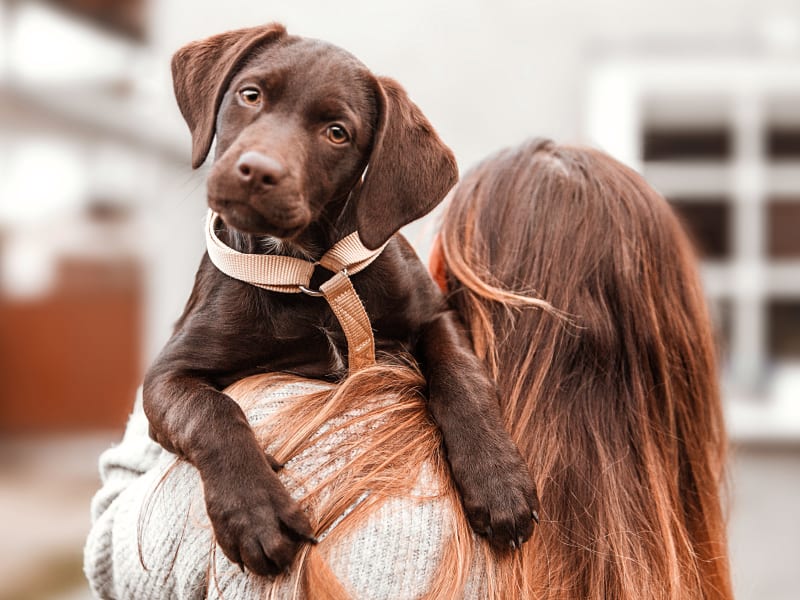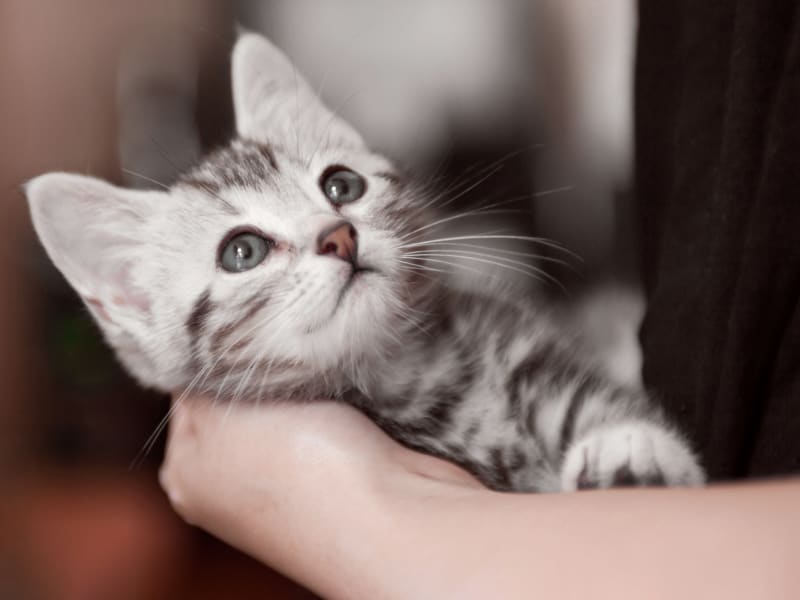
Getting Your Pet Fixed
At Heart of Brooklyn Veterinary Hospital, our team understands that making the decision to have your pet spayed or neutered can be overwhelming for many pet parents.
While all surgeries performed under general anesthesia come with risks, these common reproductive surgeries are considered to be safe for most dogs and cats.
Our veterinarians perform these procedures on a regular basis and feel that they help pets to live healthier, more contented lives while also helping to reduce the population of unwanted dogs and cats in animal shelters.
Neutering (Males)
Neutering, or orchiectomy, is a surgical procedure where the testicles are removed from male pets, preventing them from fathering litters of kittens or puppies.
Cats - Neutering your cat can help to curb undesirable behaviours such as spraying, roaming and aggression towards other cats.
Dogs - Neutering your dog may help to reduce animal aggression, 'humping' and attempts at escaping your home or yard.
Spaying (Females)
Spaying, technically known as an ovariohysterectomy, removes a female pet's reproductive organs. This surgery prevents your pet from becoming pregnant
Cats - Spaying your cat may help prevent your kitty from escaping your home, roaming, yowling and urinating inappropriately.
Dogs - Having your female dog spayed ends their heat cycle and helps prevent pyometra (womb infection) and mammary tumours.
Spaying & Neutering FAQs
-
How long does the procedure take?
Spay surgery involves the complete removal of the uterus and ovaries, this will reduce the desire for your cat to reproduce and eliminate the possibility of unwanted pregnancy. Female sterilization surgeries for dogs and cats usually take between 20 minutes and 1.5 hours at our veterinary hospital.
Neutering procedures involve the removal of the testes, which will prevent your male pet from impregnating female cats or dogs and reduces the aggression and behavior that usually stems from frustration while attempting to find a mate. Neutering male cats and dogs can typically take anywhere from 2 to 20 minutes.
-
What is the cost of spaying or neutering my pet?
The cost of spay and neuter surgery can vary not only between veterinary clinics but also between veterinary surgeons.
Speak with your vet to get a better idea of what the cost will be for your cat or dog's sterilization procedure.
-
When should I have my pet spayed? What age?
Pet owners should consult with their veterinarian to determine the best age to spay or neuter their cat or dog. Some research indicates there may be long-term health benefits to spaying or neutering dogs after they have passed through puberty.
Many veterinary professionals recommend that female animals be spayed before their first heat, which can occur as early as 5 months of age. However, there is increasing evidence that this is too young as the animals have not been allowed to fully develop and grow.
-
Why should I get my cat spayed or neutered?
Population Control
According to the ASPCA (American Society for the Prevention of Cruelty to Animals), it is estimated that around 3.2 million cats enter US animal shelters every year.
The absolute best way for you to help reduce the number of unwanted cats in Brooklyn area shelters is by spaying or neutering your feline friend.
Protect Wildlife
It is estimated that cats in the USA kill between 1.4 billion and 3.7 billion birds every year. By helping to keep the numbers of homeless cats to a minimum, you help to save the lives of countless birds and other wildlife.
Cat Neutering Benefits
Male cat neutering can help to curb many undesirable cat behaviors such as spraying indoors and around your house to mark territory, roaming, howling, and fighting with other undoctored male cats. Reducing your cat's temptation to fight may also reduce their risk of injury, and of contracting Feline immunodeficiency virus (FIV) and Feline leukemia virus (FeLV).
Cat Spaying Benefits
Female cat spaying before the first heat cycle can help to reduce your cat's risk of developing pyometra (infection of the womb) and mammary tumors. It's also important to note that female cats carrying infectious diseases can pass serious conditions on to their kittens, who may then go on to spread the disease even further. The pregnancy and the birth process can be risky for young cats, and costly to their owners.
-
Why should I get my dog spayed or neutered?
Population Control
According to the ASPCA (American Society for the Prevention of Cruelty to Animals), approximately 3.3 million dogs enter shelters every year across the USA.
Spaying or neutering your dog is the best way for you to help reduce the overall number of unplanned puppies each year while improving your pet's behavior and reducing their risk of some serious health conditions.
Dog Spaying Benefits
Female dog spaying can help to prevent serious health problems such as pyometra, (a potentially life-threatening uterine infection), and mammary cancer.
Dog Neutering Benefits
Male dog neutering helps to prevent your pet from developing testicular cancer and can also help reduce unwanted behaviors such as dog aggression, straying and humping.
-
Will my pet feel anything during the procedure?
No, your pet will be under general anesthesia, and will not feel anything during the procedure.
-
Will my pet gain weight after the procedure?
Your puppy or kitten will continue to grow to their full adult weight after the spay or neuter procedure, and this naturally includes some weight gain.
However, your pet will not gain weight as a result of being spayed or neutered. -
What should I know about the recovery process for my pet?
Spaying
After spay surgery, some clinics will want to keep your cat or dog overnight, while others will let her go home on the same day. The rule of thumb is generally 7 - 10 days of restricted activity.
Neutering
If there are no complications or other health issues, your dog or cat can usually go home on the same day of the procedure, with activity restricted for a few days while the incision heals.
For both procedures, we may send your pet home with a protective collar to keep it from licking the incision.
We typically book a follow-up visit to check on how well your pet has healed and to remove the stitches.
-
What are the signs of complications after surgery?
Even though spay and neuter surgeries are relatively safe procedures, it is good to know what to look for. You should contact your nearest emergency vet immediately if your pet begins showing any of the symptoms below.
- An unpleasant smell coming from the incision.
- Acute redness, swelling, or bruising at the incision site.
- Lethargy for more than a couple of days.
- Refusal to eat more than a couple of meals.
- The incision site reopens.
- Signs of pain for longer than a week (shaking, hiding, drooling).
- Vomiting or diarrhea longer than 24 hours after the procedure (some immediately after can be normal as a result of anesthesia).
- Bleeding or pus from the incision site.

